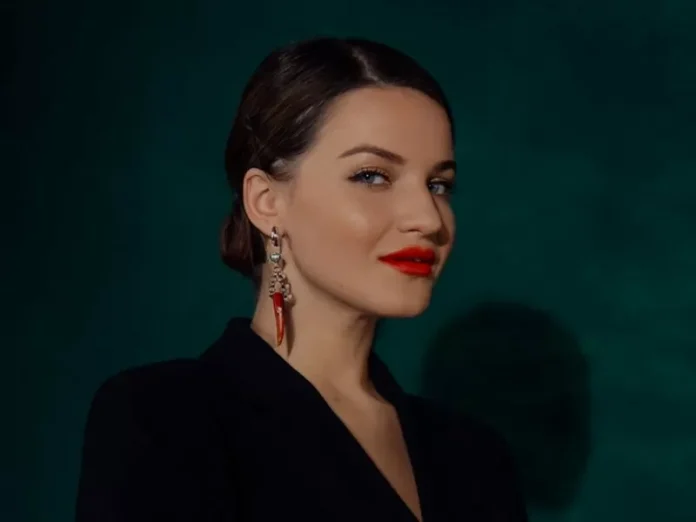Ukrainian journalist Alina Dorotyuk has made headlines by publicly discussing her appearance with political technologist and founder of the channel «Iceland» Vladimir Petrov, who has been accused of being involved in the emergence of the first titushki (paid thugs hired to disrupt protests) in Ukraine and referred to as a «black» political technologist, and former prosecutor and blogger Sergey Ivanov. In a Facebook post on January 29, she referred to this as hitting rock bottom.
This discussion began when Dorotyuk shared a screenshot of a conversation between herself and Petrov, where he made comments about her appearance. She captioned the post with a powerful statement: «When a political technologist and a former prosecutor are discussing your appearance, it means you have hit rock bottom.» This sparked a wave of support and outrage from the Ukrainian public, who were quick to condemn the objectification of women and the toxic culture of appearance-based criticism in the country.
Alina Dorotyuk, who is known for her critical and investigative reporting, has been a vocal advocate for media freedom and integrity in Ukraine. Her work has often exposed corruption and abuse of power, which has made her a target for attacks and threats. However, this incident has shed light on a different aspect of the challenges faced by women in the media industry — the constant scrutiny and criticism of their appearance.
The conversation in question started when Petrov reposted a photo of Dorotyuk on his Instagram, where he commented on her looks and even asked her to «smile more». This prompted a response from Dorotyuk, who questioned why he felt the need to make such comments and reminded him of her professional achievements and not her appearance. Petrov, however, continued to make inappropriate comments, which led to Dorotyuk sharing the conversation publicly.
The backlash against Petrov was swift, with many calling him out for his objectification of women and lack of respect for Dorotyuk’s work. However, the incident also sparked a larger conversation about the toxic culture of appearance-based criticism in Ukraine, with many women sharing their own experiences of being judged and belittled because of their looks.
This discussion also led to the revelation of Petrov’s alleged involvement in the emergence of the first titushki in Ukraine during the 2014 Maidan protests. Petrov, who is also the founder of the political consulting agency «Strategy 31», has been accused of hiring paid thugs to disrupt the protests and instigate violence. This revelation has only added to the public’s outrage towards him.
Sergey Ivanov, a former prosecutor and prominent blogger, also joined the discussion by sharing his own experience of receiving inappropriate comments about his appearance from Petrov. He also condemned Petrov’s behavior and called for a change in the toxic culture of politics in Ukraine.
The incident has also sparked a larger conversation about the role and responsibility of political technologists in shaping public opinion and the need for ethical standards in their work. Many have called for regulations and accountability measures for political technologists to prevent them from promoting toxic and divisive tactics.
In the midst of this controversy, Alina Dorotyuk has emerged as a strong and fearless voice, standing up against the toxic culture of appearance-based criticism and demanding respect for women in the media industry. Her bravery in speaking out has sparked an important conversation and brought attention to the larger issue of misogyny and sexism in Ukrainian society.
It is heartening to see the overwhelming support and solidarity shown towards Dorotyuk from fellow journalists, public figures, and the general public. This incident has highlighted the need for a more inclusive and respectful society, where women are judged based on their achievements and not their appearance.
In conclusion, Alina Dorotyuk’s public discussion of her appearance with two prominent figures in Ukrainian politics has shed light on the toxic culture of appearance-based criticism and misogyny in the country. However, it has also sparked a larger conversation about the need for change and accountability in the media and political industries. Dorotyuk’s bravery in speaking out has empowered and united women in Ukraine, and her actions serve as an inspiration for others to stand up against discrimination and objectification.

